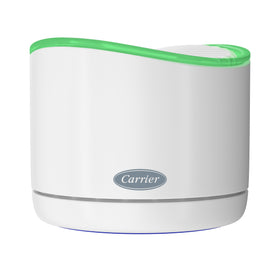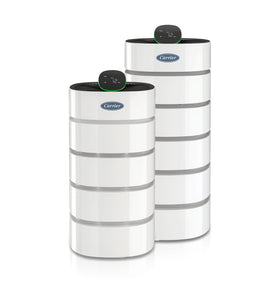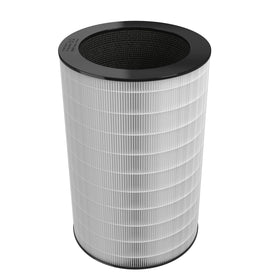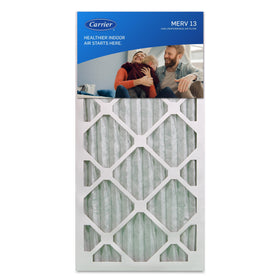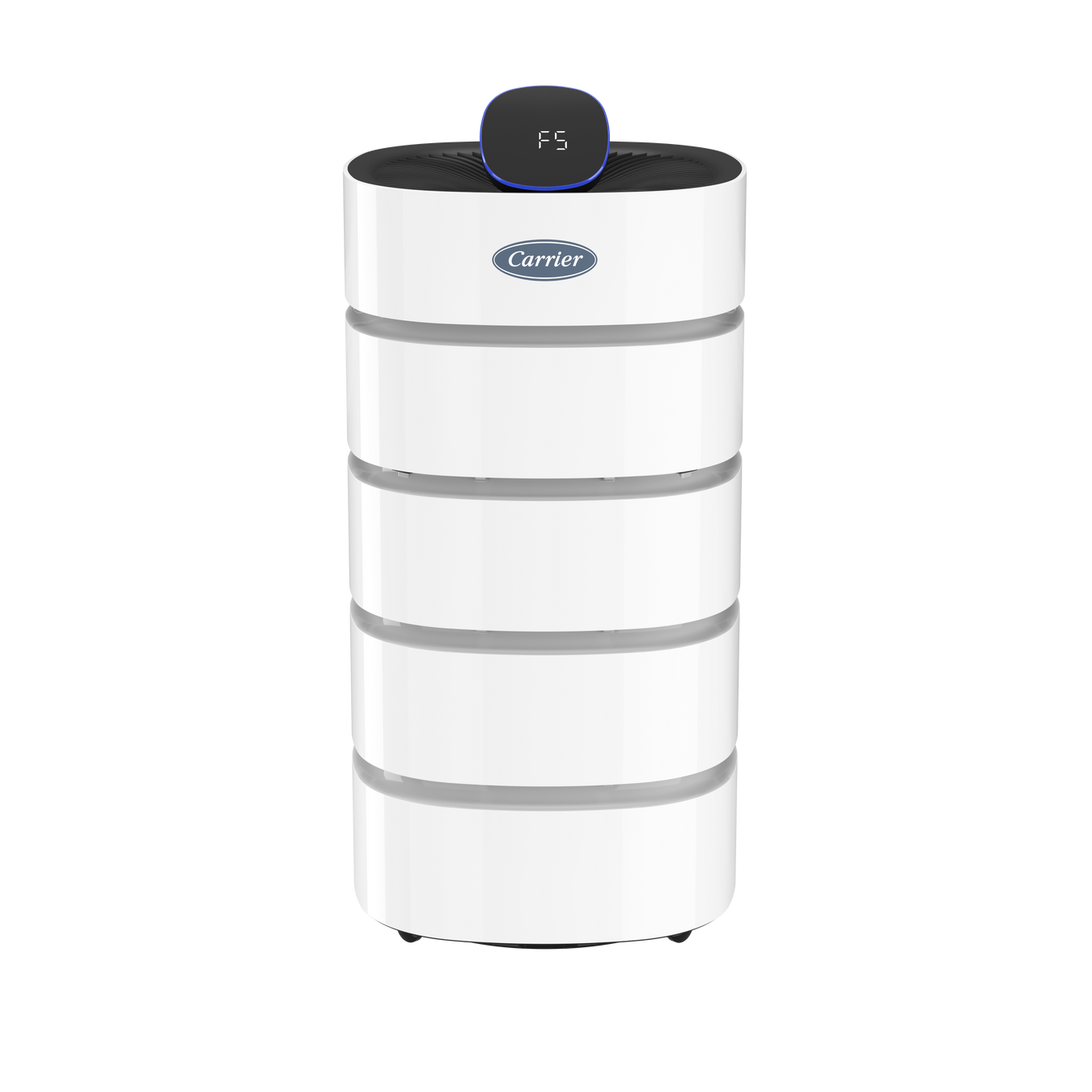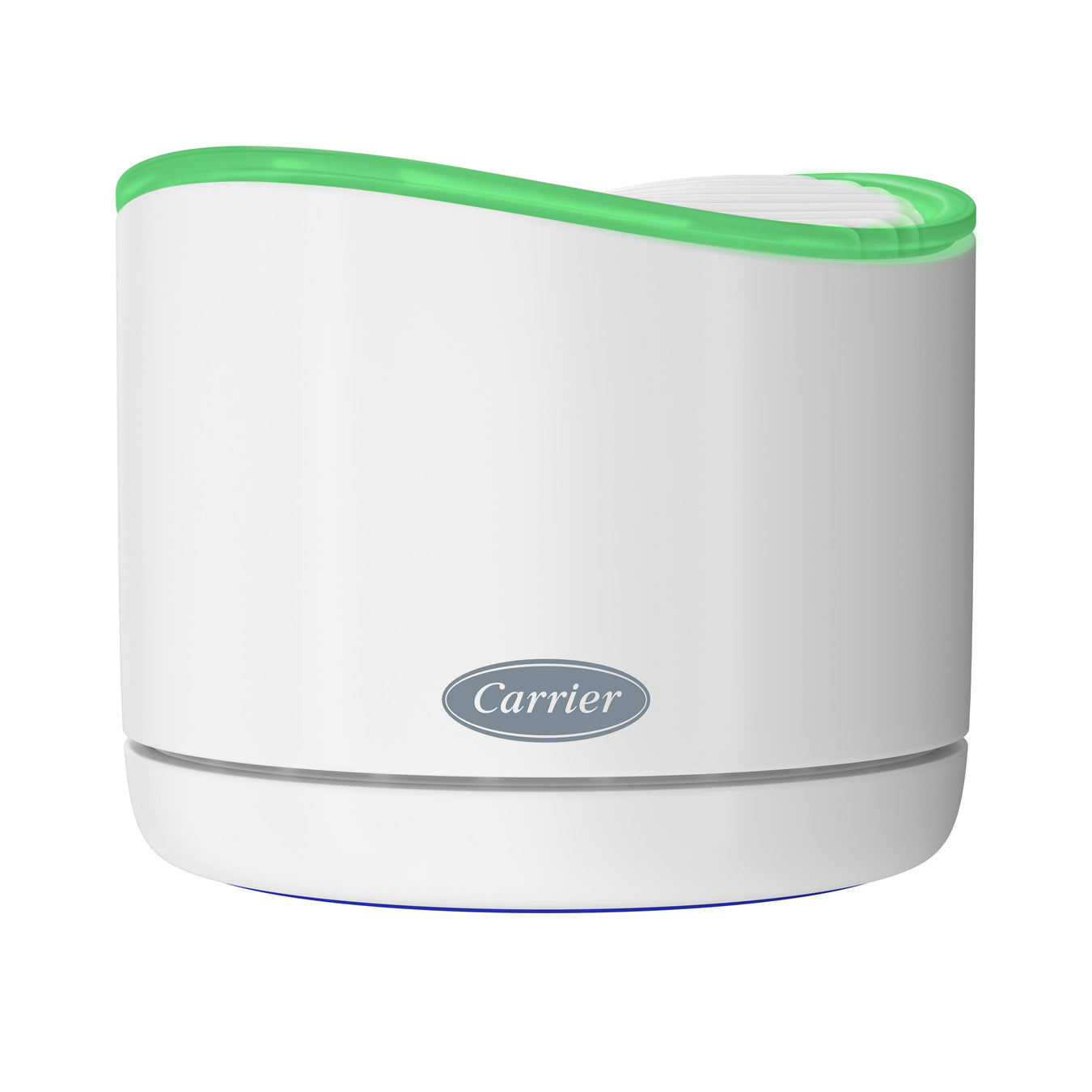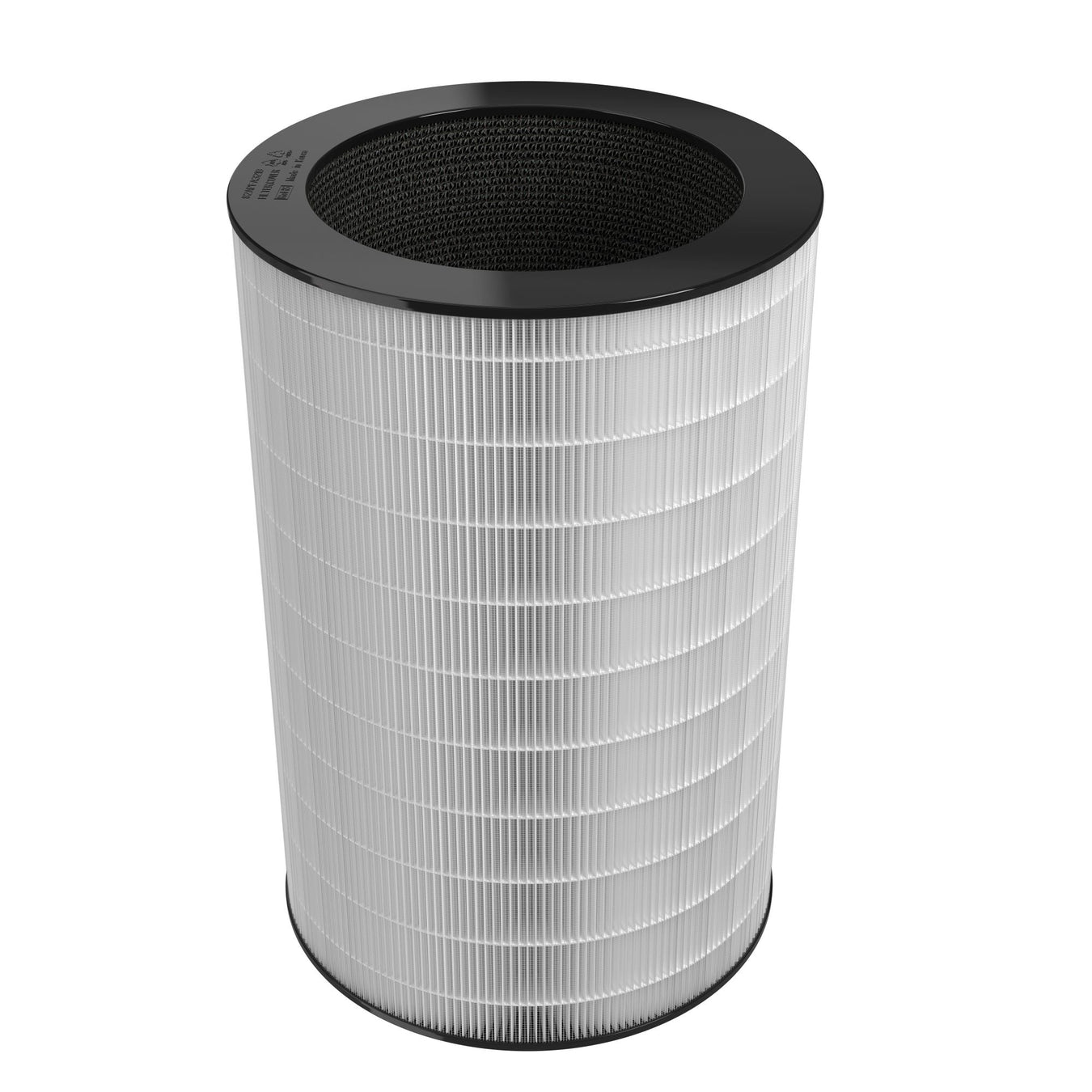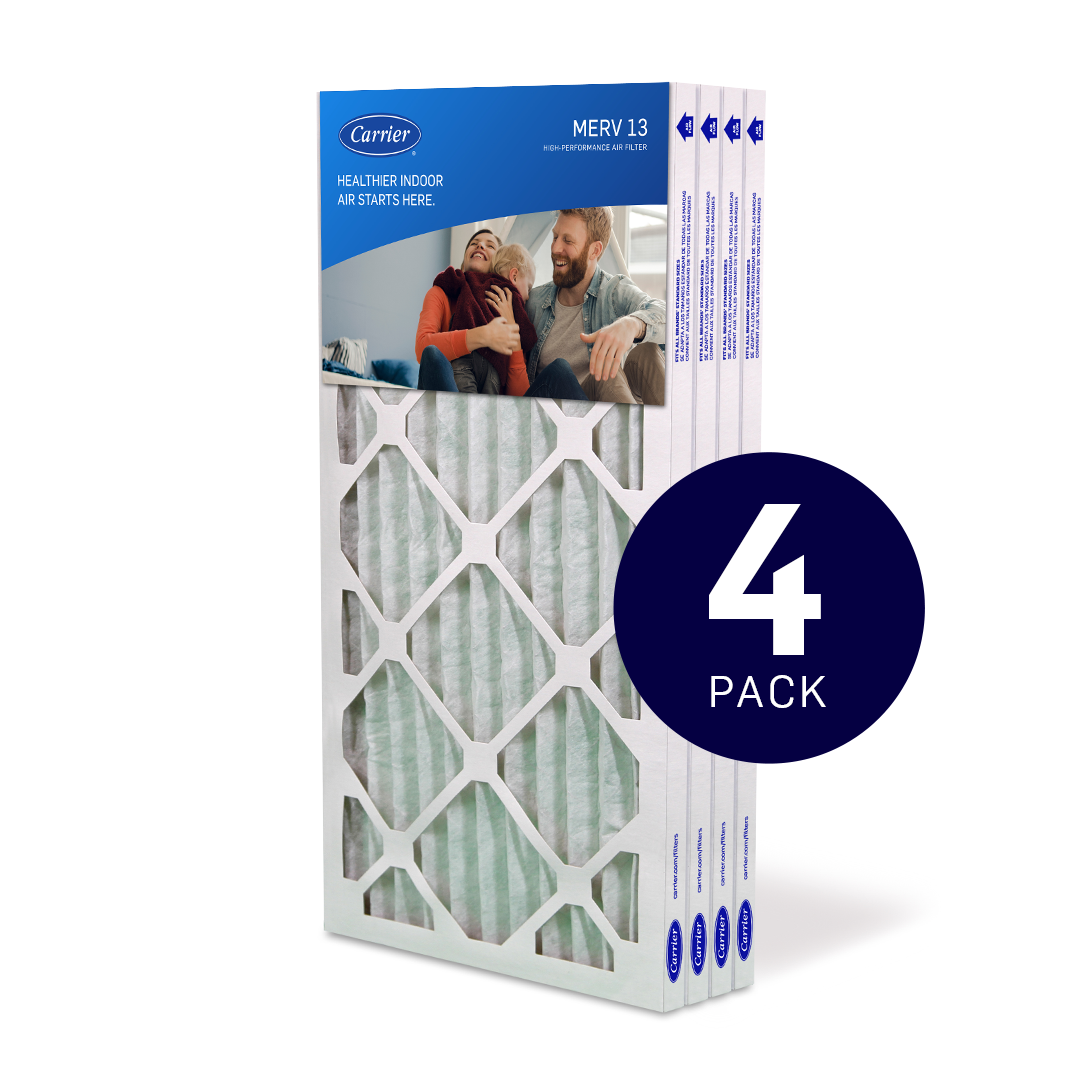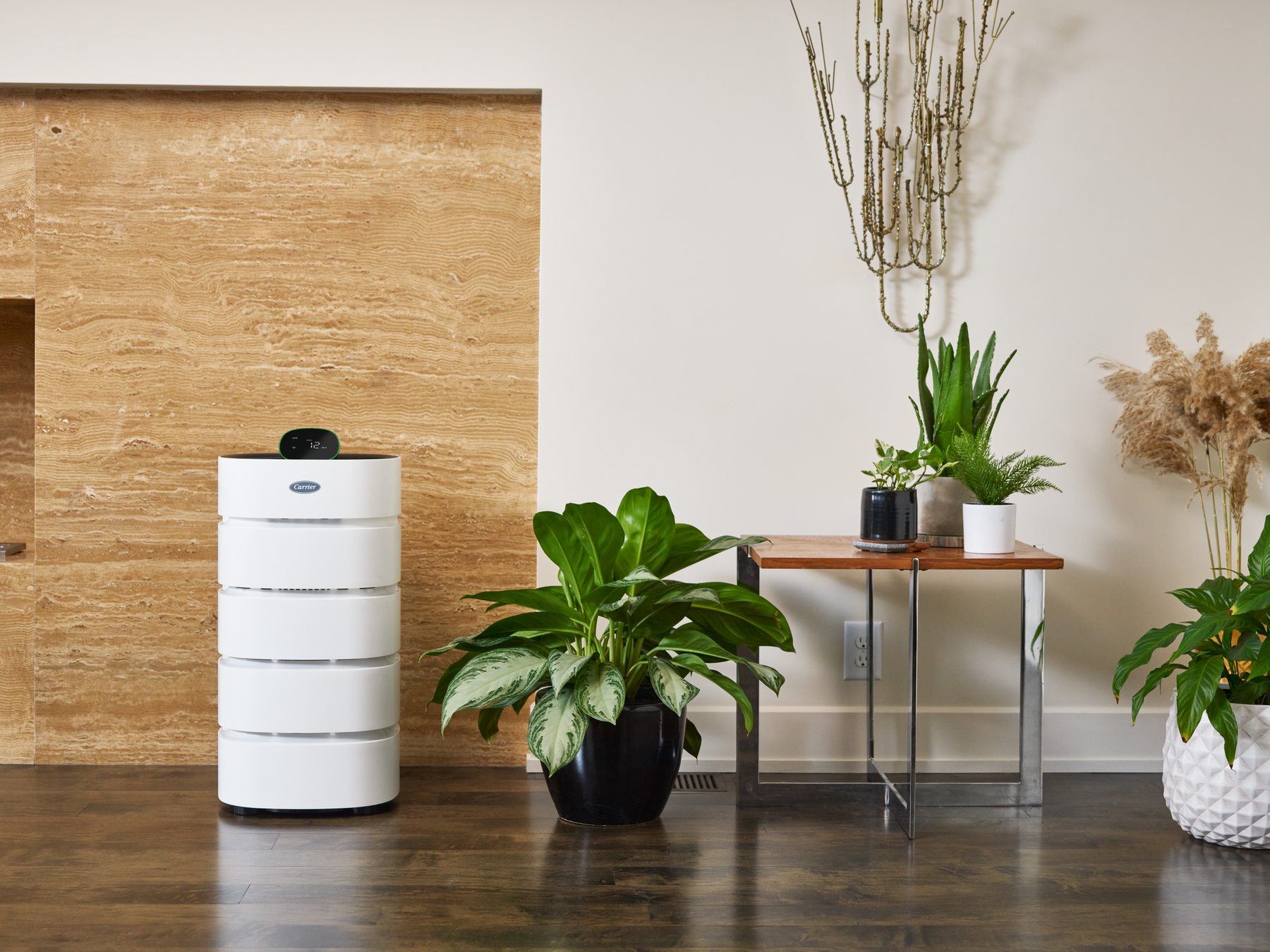
Do I Need an Air Purifier?
Would it surprise you to hear that the air quality in your home can be two to five times more polluted than the outside air?1 Cleaning products, building materials, pet dander, cooking residue and even newer energy-efficient homes can help contribute to the problem. A high-quality air purifier can help keep those pollutants from continuing to circulate within your home.
If that gives you pause for thought and causes you to ask, “do I need an air purifier?” don’t worry. We’re not about doom and gloom here at Carrier! In fact, we want to show you some of the ways you can help make your home’s air healthier.
Truth is that most people could benefit from owning an air purifier. Studies have shown that using an air purifier in your home can help improve at least one measure or marker of improved health outcome.2 A few examples of those health outcomes or markers “include allergy and asthma symptoms and several markers of cardiovascular effects … associated with exposure to [particulate matter].” And the good news is Carrier offers several different air purifier types.

Still, some air purifiers are more effective than others, no question about it. When it comes to filtering particles like dust and pet dander, HEPA filters are the highest efficiency filters and are recommended for cleaning the air.3 While air purification is not a silver bullet to cure all ails, everyone benefits from breathing cleaner, healthier air. According to the United States Environmental Protection Agency, “Using a portable air cleaner and/or upgrading the air filter in your furnace or central heating, ventilation, and air-conditioning (HVAC) system can help to improve indoor air quality.”4 To that point, some air purifiers on the market can actually make the air in your home much worse, as is the case with ozone filters.5
So, do air purifiers work? We’ll answer that in detail below.
Why Do I Need an Air Purifier?
Hopefully, we’ve already answered the question, “why do I need an air purifier?” but you probably still want to know more about how they work to improve indoor air quality in your home. The benefits of air purification go far beyond making the air noticeably cleaner. As mentioned previously, most people can benefit from having an air purifier. High quality Air purifiers can help filter pollutants and harmful irritants such as PM 2.5. Additionally, studies have shown that air purifiers coupled with mechanical ventilation can even help improve cognitive function.6 For those with respiratory problems, pets or children in their household, air purifiers are a high priority item because they can help filter pet dander, pollen and other irritants that can be bad for those sensitive to these impurities.
People with asthma and chronic allergies, for instance, can be negatively affected by a variety of allergens in their home’s air, so for these people, having an air purifier is more than a luxury — it’s an important step to help reduce those irritants within their home. Those with dogs, cats and other small animals in the home can have strong to severe reactions to pet dander, ranging from endless sneezing to breaking out into rashes and hives. For this group, it’s also important to work toward making the air in their homes as clean as possible.
Learn more and get answers to more questions like, “what does an air purifier do?” or "how to improve air quality in your home office"

Do I Need an Air Purifier for Each Room?
No, it’s not entirely necessary to have an air purifier in each room of your home. It is, however, highly recommended that you locate them in the rooms where you and your family spend the most time. Whether it’s your living room, kitchen, bedroom or a common area shared by the entire family, adding a Carrier air purifier can help everyone breathe a little easier, regardless of the season.
One factor to keep in mind is the size of your home and how much square footage your air purifier can effectively purify. It does little good to purchase a small purifier that covers a few square feet if you’re putting it in a large, open room measuring hundreds of square feet in area. For example, the Carrier Smart Air Purifier XL is suitable for rooms up to 560 square feet, while the Carrier Smart Air Purifier is effective in rooms up to 430 square feet. While that may not seem like much of a difference, consider that 560 square feet is roughly 25 percent larger than 430 square feet, which makes a big difference when it comes to providing cleaner air in your home.
A key factor that should be considered when selecting an air purifier is the efficiency of the unit. The Association of Home Appliance Manufacturers (AHAM) has developed a standard for measuring the efficacy of an air purifier called the Clean Air Delivery Rate (CADR). CADR informs you of the volume of filtered air produced by an air purifier and provides a separate score for tobacco smoke, pollen, and dust. AHAM recommends the CADR of an air purifier to be at least two-thirds of your room’s area.7 For example, the Smart Air Purifier XL has the following CADR scores: Tobacco Smoke CADR – 365; Dust CADR – 385, Pollen CADR – 427. These are independently tested and demonstrate performance in the maximum recommended 560 square feet size space.
So, in short:
- You do not need an air purifier in each of your home’s rooms, but you should consider adding one in each of the rooms you and your family will be using regularly
- Keep square footage in mind and know how much purification you will get out of each model you consider
- Pay attention to the CADR score. Air purifiers with higher CADR scores will clean the air more often and faster.
How Do I Know If I Need an Air Purifier?
All that said, you probably want to know the answer to the question, how do I know if I need an air purifier? While some of the signs might be obvious, others are a little harder to detect, as we’ll see in the section below. Among the obvious signs are that you live with pets or have respiratory problems, while others are more subtle, such as the air quality in your city. Let’s explore them below as you weigh the benefits of purchasing an air purifier from Carrier.
Signs You Need an Air Purifier
The following list includes signs that you might need an air purifier in your home to help reduce the presence of allergens and other impurities that can lead to discomfort.
- You Are Health Conscious: The air inside your home can be up to five times more polluted than outside.1 An air purifier can help filter those harmful particles, so that you can breathe cleaner, healthier air at home.
- You Live With Pets: We love our pets, but they can wreak havoc on our allergies. Pet dander, which is shed by dogs, cats, rabbits and other common household pets, collects in your home over time and builds up. While the air filter in your HVAC system can help reduce this in your home, an air purifier can be very helpful in filtering it at the room level.
- You Live With Children: All parents want the best for their children and providing cleaner, healthier air at home is often a top priority for parents. An air purifier can go a long way toward keeping your family home’s air cleaner.
- You Experience Allergies or Respiratory Issues: Seasonal allergies not only make you feel bad, but they can lead to missed work and lost productivity. Even worse, asthma can really sideline you if you’re living in a home with unclean air. From the most common sniffling and sneezing to more serious symptoms, air purifiers can help reduce allergens in your home that are known to cause allergies and asthma symptoms. It’s important to understand that air purifiers don’t treat allergies but instead filter out allergens that can cause allergy symptoms.
- You Live in an Urban Area: Cities and populous urban areas don’t just bring the typical seasonal allergy concerns, but also irritants such as smog, industrial pollution and other airborne particles that irritate your respiratory system. An air purifier with a high clean air delivery rate can help reduce their impact.
- Your Area has Recurring Wildfire Smokes Outbreaks: Occurrences of wildfires are on the rise. In the past 23 years, wildfires in the United States have become four times larger and three times more frequent. And, eight of the worst wildfire weather years on record have occurred in the last decade. Making matters worse, the negative effects of wildfire smoke on human health aren’t just concentrated in areas near the fires, or magically contained by national borders. See air purifier for smoke

Other Ways To Improve Indoor Air Quality
Looking for a few frugal and easy ways to improve indoor air quality in your home? In addition to purchasing a high-quality air purifier, you can do the following:
- Open the Windows: Nothing beats fresh air. As we mentioned above, outdoor air is often cleaner than that found indoors, so if that’s the case in your area, take advantage of this free trick to improve your home’s air.
- Keep Your Space Clean: From cleaning your carpet to vacuuming up pet hair using a vacuum with a HEPA filter, you can do a lot to reduce the impurities in your air with a small amount of effort.
- Don’t Burn Candles: Candles can be lovely, but they also can be a source of indoor air pollution.8. Yikes! Keep the candle burning to a minimum and be sure to ventilate around them when possible.
- Change your HVAC Air Filters: Air quality can vary within your home. However, one of the benefits of your HVAC system is that it helps circulate conditioned air from room to room. Changing your HVAC filter on a regular basis can not only help your system run more efficiently but will help ensure your filter is working properly.
- Use Exhaust Fans in the Kitchen: When cooking, use any and all methods available to deliver fresh air into your kitchen while removing the odors and impurities released by frying and baking.
- Add Some Indoor Plants: Not only are plants pleasant to look at, but they can also impact the air in your home.9 So, grab a few palms, ferns and succulents to add a literal breath of fresh air to your home.
Find the Right Air Purifier for You
When you’re ready to purchase an air purifier, be sure to check out the full, versatile lineup of air purifiers from Carrier. Shop Carrier air purifiers today.
Read this article for any tips about air purifiers for small offices or air scrubber vs air purifier
- https://www.epa.gov/report-environment/indoor-air-quality
- https://www.epa.gov/sites/default/files/2018-07/documents/residential_air_cleaners_-_a_technical_summary_3rd_edition.pdf
- https://www.cdc.gov/coronavirus/2019-ncov/community/ventilation
- https://www.epa.gov/indoor-air-quality-iaq/guide-air-cleaners-home
- https://www.epa.gov/indoor-air-quality-iaq/ozone-generators-are-sold-air-cleaners
- https://iopscience.iop.org/article/10.1088/1748-9326/ac1bd8
- https://ahamverifide.org/ahams-air-filtration-standards/
- https://cfpub.epa.gov/si/si_public_record_report.cfm?Lab=NRMRL&dirEntryId=20899
- https://bioresources.cnr.ncsu.edu/resources/use-of-plants-to-clean-polluted-air-a-potentially-effective-and-low-cost-phytoremediation-technology/

